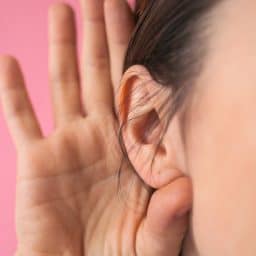Your Genes and Hearing Loss

One of the most common birth defects is hearing loss or deafness (congenital), which can affect as many as three of every 1,000 babies born. Inherited genetic defects play an important role in congenital hearing loss, contributing to about 60 percent of deafness occurring in infants. Although exact data is not available, it is likely…
Travel Tips for the Hearing Impaired

Travel is an important aspect of our lives. Whether for business or vacation, traveling can be as stressful as it is enjoyable. And for more than 20 million people in the U.S. with hearing loss, travel can be especially difficult. What are common problems? What arrangements can be made? Many major airlines and transportation companies…
What is Unilateral Hearing Loss?

What is Single Sided Deafness? Sometimes referred to as unilateral hearing loss, single sided deafness is a condition in which an individual experiences hearing loss in only one ear but can hear normally out of the other ear. While most patients with a hearing impairment suffer from bilateral (two-sided) hearing loss, SSD affects approximately 60,000…
What is Sudden Hearing Loss?

For most people who experience hearing loss, the condition comes on gradually over a period of years. In rare cases, an abrupt loss of hearing occurs with little or no warning. This condition is known as sudden sensorineural hearing loss (SSHL). What is Sudden Deafness? Sudden deafness is an unexplained and rapid hearing loss that…
What is Noise Induced Hearing Loss?

How Can Sounds Hurt Your Ears? Background sound is a constant in our busy lives. Normally, background noises are at safe levels that do not negatively impact our hearing. But repeated exposure to noise above 85 decibels (dB) can cause noise induced hearing loss. The louder the sound, the less amount of time it takes…